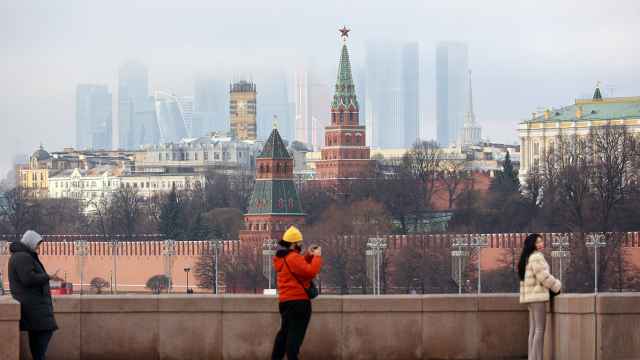The threat of an explosive disintegration of the euro zone, and with it of the European Union, is receding. But the confused outcome of Italy's recent parliamentary election, with an upper house dominated by a party that campaigned on an anti-EU platform and a pro-European majority in the Chamber of Deputies, has revived the fundamental debate about the purpose of European integration.
Europeans find it hard to find a positive way of describing the exercise in which they have been engaged for the past six decades. One common interpretation is that integration makes people better off. Unity is supposed to be a foundation of prosperity. The Common Market was defended at the outset in terms of the gains that would follow from increased trade. The case for capital-market integration and for a single currency was similar.
All of this recalls some powerful arguments that were made in the 19th century about national integration and unification. In particular, the two countries whose problems drove much of the need for 20th-century European integration — Germany and Italy — were culturally and politically highly diverse. In both countries, early 19th-century romantic nationalism gave way to a sober obsession with economic forces after the failed revolutions of 1848.
German journalist Ludwig von Rochau, who coined the term Realpolitik, described the new German mood on the eve of Chancellor Otto von Bismarck's last war of unification from 1864-71. German unity was not a question of the heart's desire. It was "a mundane business transaction, in which no one should lose, but everyone should grab as much as they could for themselves."
This sort of economic nationalism in Germany and Italy briefly produced coalitions of interests that supported the drive to national unification under Bismarck. But the credibility of the national project seemed to crumble when growth faltered, leading to the emergence of movements that championed the aggressive, confrontational and violent assertion of cultural identity.
Italian Prime Minister Mario Monti is the 21st-century descendant of those 19th-century patriots who argued for the economic necessity of national unity. Now it is European unity that is needed for economic reasons. This vision of Europe is not idealistic; It is simply concerned with how europeanization can benefit Italians. Like its 19th-century precursor, it is vulnerable to severe backlashes, especially when it appears to bring only pain and suffering.
Indeed, when today's Europeans peer into the future, they see only prolonged recession and austerity. Europe means nothing but sacrifice: northern Europeans paying for southern Europe's woes through large transfers, or southern Europeans repaying onerous, and maybe impossible, levels of debt.
A variant of the economic argument for European unity is the claim that enhanced integration makes it easier to finance debt because interest rates are lower. A reduction in borrowing costs constituted a powerful motive in the 1990s for southern European governments to join the monetary union. But the costs of moving into a non-defaulting environment are high.
Here, another historical parallel is helpful. In the ancient regime, France repeatedly imposed semi-default on its creditors by reducing interest rates and extending maturities. In the 1780s, a new consensus against such measures emerged. But the impossibility of raising revenue then triggered the French Revolution, with the revolutionaries demanding confiscatory taxes and impositions on the wealthy elite.
The alternative to thinking about European integration simply as a way of generating wealth and prosperity frequently analogizes it to a marriage. In the late 1980s, for example, European Commission President Jacques Delors, raising the prospect of a two-speed Europe, suggested that one or two countries might need a "different kind of marriage contract."
The marriage analogy was used initially to signal that the European relationship was exclusive. Europeans had a unique relationship with which no one, especially the U.S., should interfere. As Dominique Strauss-Kahn, then France's finance minister, put it in 1997, "People who are married do not want others in the bedroom."
But marriage can be a fraught institution. British economic journalist Martin Wolf thinks of Europe as a marriage kept together only by the high cost of divorce. Others see it as a sham marriage.
Traditional marriage vows entail a commitment that binds the partners through changing circumstances: for richer and for poorer, in sickness and in health. Even if the marriage does not make the partners better off, they still need to stick with it. So neighbors who have a quarrelsome or violent past are not well advised to reconcile by marrying.
The problem was that the Europeans did not understand what marriage really meant and why they should want to get married. Enthralled by promises of well-being and security, they had exaggerated expectations of romantic wedded bliss.
The unhappy marriage analogy for Europe's current malaise, while depressing, is helpful. At least it tells Europeans that they are not stuck together only for material reasons. But until that lesson is really learned, Europe must brace itself for more setbacks and backlashes, which means that it must still answer the fundamental question: Why stick it out together, especially at a time when more and more Europeans are choosing not to get married at all?
Harold James, professor of history and international affairs at Princeton University, is the author of "Making the European Monetary Union." © Project Syndicate
A Message from The Moscow Times:
Dear readers,
We are facing unprecedented challenges. Russia's Prosecutor General's Office has designated The Moscow Times as an "undesirable" organization, criminalizing our work and putting our staff at risk of prosecution. This follows our earlier unjust labeling as a "foreign agent."
These actions are direct attempts to silence independent journalism in Russia. The authorities claim our work "discredits the decisions of the Russian leadership." We see things differently: we strive to provide accurate, unbiased reporting on Russia.
We, the journalists of The Moscow Times, refuse to be silenced. But to continue our work, we need your help.
Your support, no matter how small, makes a world of difference. If you can, please support us monthly starting from just $2. It's quick to set up, and every contribution makes a significant impact.
By supporting The Moscow Times, you're defending open, independent journalism in the face of repression. Thank you for standing with us.
Remind me later.






